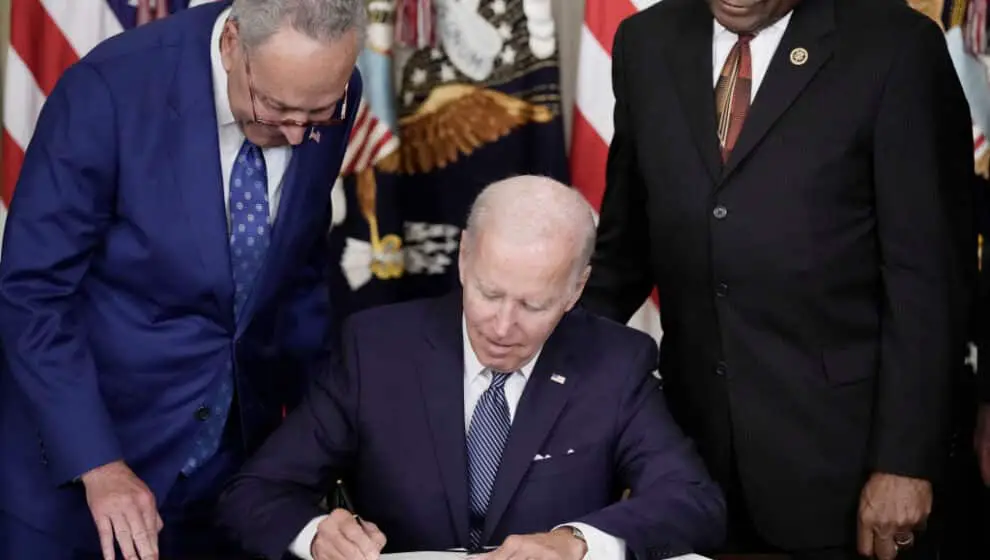The Inflation Reduction Act does many things but reducing inflation is not likely one of them.
Key details
Economists are questioning whether the Inflation Reduction Act will slow inflation in the long term. A study from the University of Pennsylvania suggests that “the impact on inflation is statistically indistinguishable from zero.” The nonpartisan congressional budget office agrees, saying the effect on inflation will be negligible.
“The Act would have no meaningful effect on inflation in the near term but would reduce inflation by around 0.1 percentage points by the middle of the first decade,” says the University of Pennsylvania Wharton School study.
The legislation also does not directly address gas, food, or restaurant prices, which are directly driving up the inflation number. It will lessen the cost of prescription drugs for the elderly and reduce energy prices, according to AP.
Why it’s important
“It’s going to be increasing inflation in the short term. The government doesn’t have money to fund it, so the $427 billion is going to mean more debt, which in turn will cause inflation, which longer term will not reduce inflation significantly,” Fluent Financial CEO Mitch Kramer told us.
Kramer noted that corporations are going to pass the prices and tax increases from the bill along to their customers, which will additionally increase inflation in the short term. A provision in the bill offers a tax credit for purchasing an electric vehicle, but Kramer notes that Ford Motor and GM raised prices on some of their vehicles last month by $6,000 to $8,500. Manufacturers will pass the burden on to taxpayers and customers.
Backing up a bit
Inflation has risen considerably over the last year, peaking at 9.1% in June before slowing to 8.5% in July. The Fed is making efforts to curb inflation by raising interest rates.
Talk of inflation will dominate the midterm elections in November, and President Joe Biden’s effort behind this bill will no doubt be used as a talking point.
The President signed the Inflation Reduction Act on Tuesday, a $427 billion bill in an effort to slow inflation. Senate Democrats say the bill will also “lower energy bills,” “lower health care costs,” “create manufacturing jobs,” and offers “historic climate investment.” The bill invests $369 billion in climate change investments, $64 billion in extending the Affordable Care Act, institutes a 15% corporate minimum tax, and expands IRS tax enforcement.

